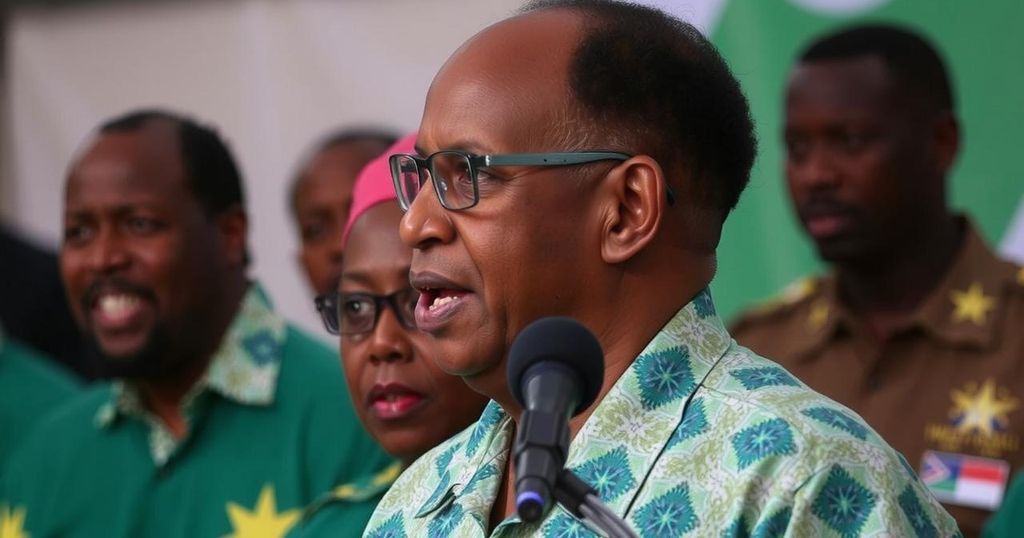Mozambique’s Post-Election Crisis: Challenges for President-Elect Daniel Chapo
Mozambique’s President-elect Daniel Chapo must address a post-election crisis marked by unrest and accusations of electoral fraud. Chapo’s victory has intensified protests led by opposition supporters, pressing for negotiations to resolve tensions. His proposed reconciliation initiative faces risks of internal conflict within the ruling party, complicating the political landscape.
Mozambique’s President-elect Daniel Chapo encounters considerable challenges in resolving the ongoing post-election crisis, which has significant implications for the nation’s economic stability and regional trade relations. Following the Constitutional Council’s announcement on December 23, affirming Chapo’s victory in the disputed October 9 general elections against opposition leader Venancio Mondlane, tensions escalated. Chapo has proposed a reconciliation initiative scheduled for discussion after his inauguration on January 15, yet the endorsement of the election outcome has incited renewed protests from Mondlane’s supporters, who claim the elections were manipulated. These developments may compel Chapo to reach a compromise with Mondlane, though such negotiations could potentially incite factionalism within the ruling Frelimo party.
The political landscape in Mozambique has been fraught with instability stemming from accusations of electoral malfeasance. The recent general elections have raised questions regarding the legitimacy of the results, leading to widespread discontent among opposition factions. The ruling Frelimo party’s hold on power has been challenged by the persistent call for democratic reforms and dialogues addressed to the grievances expressed by the opposition, particularly from leaders like Venancio Mondlane. These dynamics underscore the fragile state of governance and civil order in Mozambique following the elections.
In summary, President-elect Daniel Chapo’s efforts to stabilize Mozambique amidst a turbulent post-election environment will require careful navigation of internal party dynamics and external pressures. The immediate need for dialogue and reconciliation is paramount, as failure to address the unrest and opposition grievances may jeopardize economic stability and lead to further societal discord. Thus, the next steps taken by Chapo will be critical in determining Mozambique’s political trajectory and social cohesion.
Original Source: worldview.stratfor.com




Post Comment